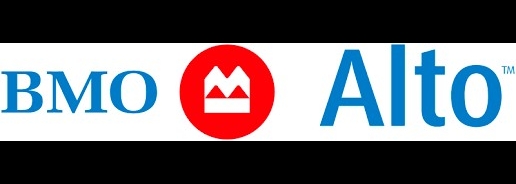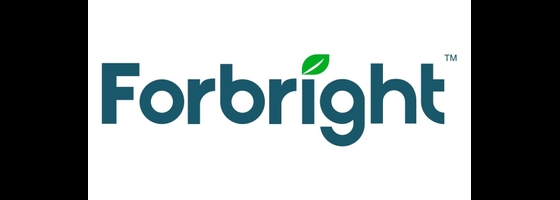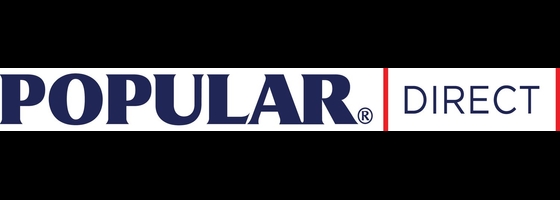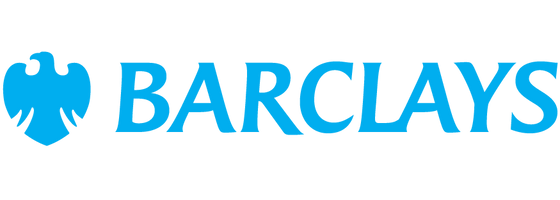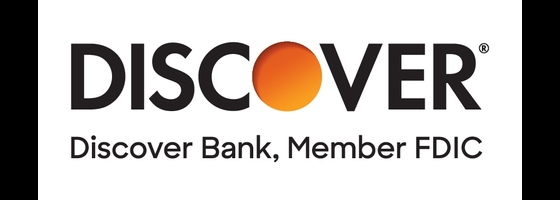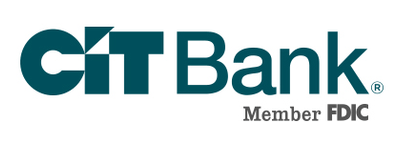Best CD Rates in October 2024

Our evaluations and opinions are not influenced by our advertising relationships, but we may earn a commission from our partners’ links. This content is created by TIME Stamped, under TIME’s direction and produced in accordance with TIME’s editorial guidelines and overseen by TIME’s editorial staff. Learn more about it.
A savings account offers a secure way to grow your money, but the current interest rate environment is making CDs an attractive choice. The Federal Reserve has raised the federal funds rate 11 times since March of 2022, pushing CD rates to highs that haven't been seen in years. With rate cuts expected to come in 2024, now may be an ideal time to consider opening one or more CD accounts to cash in on impressive yields.
Some of the best CD rates vary based on the term. Those CD terms are often the sweet spot for earning the highest yields, though banks can sometimes offer higher rates on shorter or long-term CDs. The best CD overall is the one that offers a term you're comfortable with, while paying the highest possible rate.
If you're hoping to get the most interest for your money, it's important to know which banks and credit unions offer the best CD rates. We've rounded up the best CD rates available now to help you grow your savings.
| Institution | Term | APY* | Minimum deposit |
|---|---|---|---|
BMO Alto | 6 months | 4.70% | $0 |
Forbright | 9 months | 4.50% | $1,000 |
Bread Savings | 1 Year | 4.40% | $1,500 |
PopularDirect | 6 months | 4.80% | $10,000 |
LendingClub | 10 Months | 4.70% | $2,500 |
Barclays | 12 Months | 3.75% | $0 |
Discover® Bank | 1 Year | 4.10% | $2,500 |
Quontic | 6 Months | 4.60% | $500 |
Valley Direct | 12 months | 4.50% | $500 |
CIT Bank | 11 months | 3.50% | $1,000 |
BMO features some of the best CD rates among online-only CDs. You might consider a high-yield CD account here if you don't necessarily need to visit a branch to make deposits or manage your account.
There's no minimum deposit required and no minimum balance you're expected to meet, which is another plus. You can choose from six terms ranging from six months to five years. Interest is paid monthly and BMO offers a handy CD calculator that you can use to estimate how much you could earn using different terms and deposits.
Have you ever wished that you could save money while doing something good for the environment? If so, then Forbright's CDs might be right for you.
Forbright offers some of the best CD rates available and your deposits can help make a difference in reducing carbon emissions. The bank finances both commercial and residential green energy projects, which is a nice incentive to consider saving here if you're trying to be more environmentally conscious.
There's a $1,000 minimum deposit requirement to meet. Forbright makes opening and funding a CD account easier by allowing you to connect your banking information through Plaid.
4.40%
Banks can cap the amount of money you're able to keep in a CD but Bread Savings offers savers flexibility. It's possible to deposit up to $1 million in a single CD account and keep up to $10 million across all of your accounts with Bread.
Does it make sense to keep that much money in CDs? The answer can depend on your financial situation and goals. However, people who have substantial savings and prefer to take a more conservative approach to their money might appreciate the option to park a large chunk of it in high-yield CDs.Note, however, that the FDIC only protects $250,000 per each “ownership category.” All single accounts (those owned by one person) are added up together. If your CD holds more than that amount, the excess will not be insured. Wisest for $1 million might be four CDs at four different banks.
Popular Direct offers multiple CD options with competitive rates, all of which require a $10,000 minimum deposit to open. These CDs might be attractive for someone who has more to save or is looking for a shorter CD term. The minimum term is three months while the maximum is five years.
Another nice feature is round-the-clock customer support, which is helpful if you have an issue with your account or need an answer to a question that you're unable to find on the Popular Direct website. You can set up a new CD account online in minutes and manage your accounts online or through the Popular Direct mobile banking app.
LendingClub is perhaps best known for offering personal loans but you can also find banking products here, including high-yield CDs. You'll need at least $2,500 to open a CD and you can choose a CD term ranging from six to 60 months.
Aside from competitive CD rates, LendingClub stands out as an award-winning bank. It's consistently among the top-rated banks for the range of products and services offered, low fees, and superior customer service. While you might be focused solely on finding the best CD rates, it's important to consider the entirety of what a bank has to offer and the kind of reputation it's earned.
Barclays offers CDs ranging from 6 to 60 months, none of which require you to make a minimum opening deposit. You'll need to deposit something to start earning interest but you can choose an amount that fits you financially.
So, if you can only afford to park $250 in a CD right now that's not a barrier to opening an account with Barclays. At other banks, meanwhile, you might need $500 or more just to get started. Opening a small CD account with Barclays can be a good way to learn the basics of how they work while earning an impressive interest rate on your money.
4.10%
Discover® Bank offers CD terms ranging from 3 Months to
10 Years
, which may be ideal for savers who are funding longer-term goals. The highest CD rate is reserved for the 12-month CD account, but it's still possible to earn competitive rates with other terms, like its 9-month CD accountYou'll need at least $2,500 to open a CD with Discover® Bank, which is the highest minimum deposit requirement of the banks listed here. In addition to CD accounts, Discover®Bank also offers high-interest checking accounts, money market accounts (MMAs), and one of the best high-yield savings account options of any online bank.
4.00%
1 Year
Quontic is a digital bank that offers CD accounts, along with some of the best checking accounts for people who are looking for an alternative to traditional banking. You can open Bitcoin checking, rewards checking, or high-interest checking accounts here.
In terms of what makes Quontic a standout for CDs, a $500 minimum deposit and the competitive rates you can earn are both attractive features. You could open more than one CD with Quontic if you're interested in laddering, and there are no monthly fees. There is, however, a penalty for withdrawing money from a CD before maturity.
4.10%
1 Year
3.50%
CIT Bank features competitive rates, with the highest annual percentage yield (APY) reserved for its 13 Months and 11 Months. A no-penalty CD might be preferable if you'd like to be able to withdraw cash ahead of the maturity term, without sacrificing any of your accrued interest.
The minimum deposit to open a CD account is $1,000 and that applies across all terms. In addition to CDs, there are other ways to save with CIT. You could open a high-yield savings account, checking account, or money market account. CIT also offers home loans.
| Term | APY* | Min. deposit | Monthly fee |
|---|---|---|---|
6 months | 3.00% | $1,000 | $0 |
11 months (no penalty) | 3.50% | $1,000 | $0 |
12 months | 0.30% | $1,000 | $0 |
13 months | 3.50% | $1,000 | $0 |
18 months | 3.00% | $1,000 | $0 |
24 months | 0.40% | $1,000 | $0 |
36 months | 0.40% | $1,000 | $0 |
48 months | 0.50% | $1,000 | $0 |
60 months | 0.50% | $1,000 | $0 |
We chose the best CD rates based on which banks offered the highest APYs as of December 1st, 2023. In creating our rankings, we also considered the minimum deposit requirements to open a CD and the range of terms offered. Our final rankings reflect the best CD accounts that are available online, from both online-only and traditional banking institutions. We only included those that insure deposits through the FDIC.
There are many options for opening CD accounts, including online banks and brick-and-mortar banks. Credit unions offer a similar type of account called a “share certificate,” which pays dividends rather than interest—but works the same way and is insured through the National Credit Union Administration (NCUA).
Finding the best CD account for you starts with understanding what you need and researching what different banks have to offer.
Here are some tips for choosing the best CD account for you.
CD rates are on an upward trend and have been for some time. For instance, the national average rate for a 12-month CD was 1.81% as of May 20, 2024, according to FDIC data. In May 2022 the national average rate for the same CD term was 0.96%.
Why are CD rates on the rise? It has to do with adjustments to the federal funds rate, which is the rate at which deposit institutions lend money to one another overnight. The Federal Reserve controls movements in the federal funds rate to manage monetary policy in the U.S.
When there's an increase in the federal funds rate, banks can raise rates for CDs and other interest-bearing accounts. Likewise, loan and credit card rates can also rise. Conversely, when the Fed cuts rates, banks can pay less to savers and charge lower rates for loans.
Beginning in the first quarter of 2022, the Fed started raising rates in an attempt to curb rising inflation. As mentioned, there have been 11 rate increases since March 2022. However, the Fed continued to hold interest rates steady at its May 1, 2024, meeting and is expected to cut interest rates in 2024 going forward. Opening a CD account now before that happens (the Fed’s next meeting is scheduled for June 11 and 12) is probably a good idea.
A CD account is one way to save, but it's not the only option. You might also consider any of the following if you're looking for CD alternatives:
You might also consider opening an investment account to purchase stocks, bonds, or other securities. Investing money could help you to earn even higher interest rates. However, it's important to keep in mind that investing can be risky, and there's always the possibility that you might lose money.
Your choice of bank matters. You might choose one of the options included here or start your search at your current bank before branching out. When comparing CD rates, remember to also factor in maturity terms, early withdrawal penalties, and which way interest rates are moving in general.
What constitutes a good CD rate can depend on the overall interest-rate environment. If rates are low in general, anything approaching 1.00% might be good. When rates are high, it's not unusual to see banks offering APYs in the neighborhood of 5.00%. Comparing different banks can help you find the best CD rates.
There are a number of online banks that offer 12-month CDs with competitive rates. Some of the highest-paying 12-month CDs have rates ranging from 4.75% to 5.00%. Traditional banks can also offer 12-month CDs, though it's not uncommon to see much lower rates.
Whether it makes sense to choose a 10-year CD can depend on your goals and what you expect to happen with CD rates. A 10-year CD with a 5.00% APY may be attractive if you expect CD rates to drop substantially and remain low during that time period. On the other hand, a 10-year CD may not be worth it if you expect CD rates to rise or know you'll need your money before maturity.
*APY's are subject to change. APY's are updated as of July 2, 2024.
The information presented here is created by TIME Stamped and overseen by TIME editorial staff. To learn more, see our About Us page.
